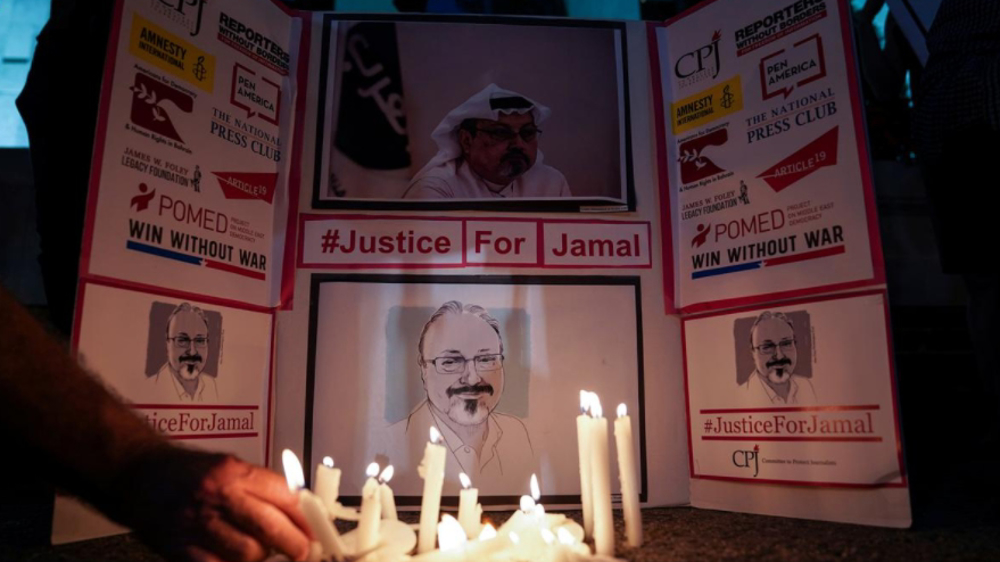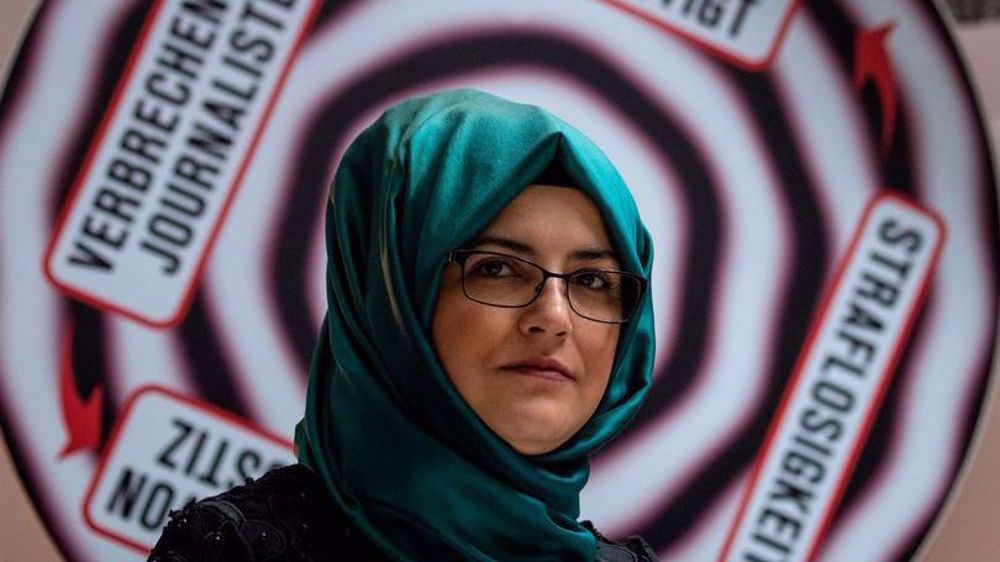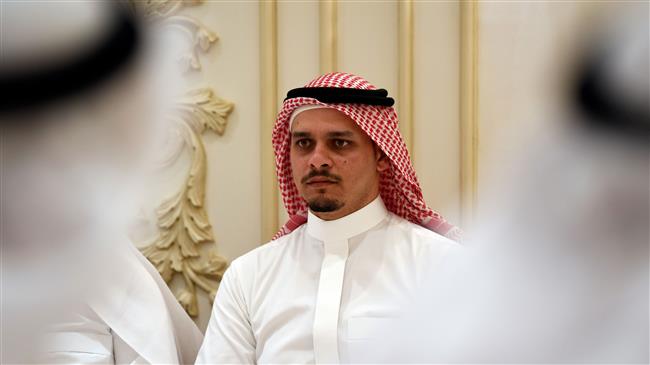UN on Saudi Khashoggi ruling: Punishment doesn’t fit the crime
The United Nations has condemned the disproportion between a Saudi court ruling on the 2018 assassination of dissident journalist Jamal Khashoggi and the enormity of the crime.
"This is case where there has not been proper transparency in the justice process, those responsible should be prosecuted and given sentences commensurate with the crime," UN Spokesman Rupert Colville told a Geneva briefing on Tuesday.
"There is a whole issue of transparency and accountability in the case," he added, a day after a Saudi court sufficed to jailing eight people for between seven and 20 years over the atrocity.
Khashoggi was killed and dismembered at the Saudi Consulate in Istanbul on October 2 2018 after entering the premises to collect documents for a planned wedding.
The Washington Post, for which he was a columnist, reported in November 2018 that the CIA had concluded that Saudi Crown Prince Mohammed bin Salman had personally ordered his killing by a hit squad at the consulate.
The victim used to critique bin Salman’s policies, including the deadly war the kingdom is leading against its impoverished southern neighbor Yemen.
Khashoggi’s family ironically pardoned the alleged perpetrators four months before the ruling.
Khalil Jahshan, from the Arab Center in Washington, DC, a friend of the Khashoggi family, told Al Jazeera, “According to legal practice in Saudi Arabia, the family has a right to commute any sentence, and the family has issued such a declaration - most probably under duress. I don't think it was done freely, knowing the family."
He noted the Saudi Prosecutor's Office has said that the ruling "closes the case forever," while the critic’s body was still missing.
US intervention
Observers say the crown prince, who, himself, has acknowledged that the murder took place “under my watch,” would not have been able to avoid accountability for the crime without the United States’ support.
Some analysts say letting the royal get away scot-free would require a payback from Riyadh, speculating that the Saudi kingdom would normalize its relations with Israel as a token of appreciation.
According to Israel’s Ha’aretz paper, bin Salman, in order to endear himself with the US after the killing, has been allowing the Zionist regime to attain the status of an intermediary between the Arab world and Washington.
Last month, the United Arab Emirates and Israel announced a deal that laid the groundwork for full normalization of their relations. The US-brokered agreement was met with uniform condemnation from all Palestinian factions, who called it a "stab in the back" of the Palestinians and sheer betrayal of their cause.
Saudi Arabia and Bahrain next opened their airspaces to UAE-Israel flights.
Mother’s Day: Sareh Javanmardi’s inspiring journey as Paralympic champion and mother
Russia downs over 40 Ukrainian drones as Putin vows 'destruction' on Kiev
VIDEO | Yemen: A bone in Israeli neck
D-8’s role in Iran’s economy after Cairo summit
China slams US as ‘war-addicted’ threat to global security
China ‘firmly opposes’ US military aid to Taiwan
VIDEO | Press TV's News Headlines
President Yoon Suk Yeol to be removed from office














 This makes it easy to access the Press TV website
This makes it easy to access the Press TV website